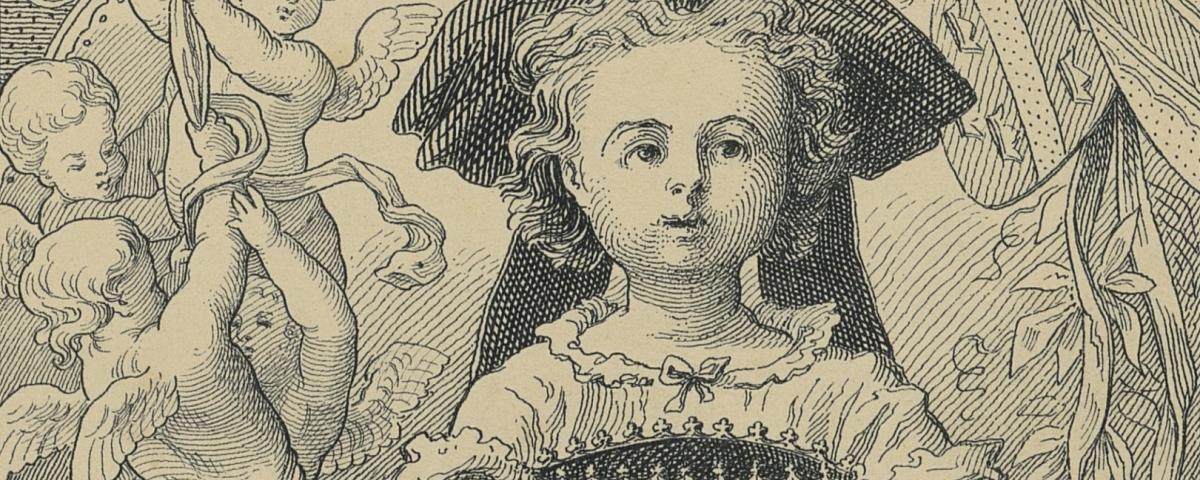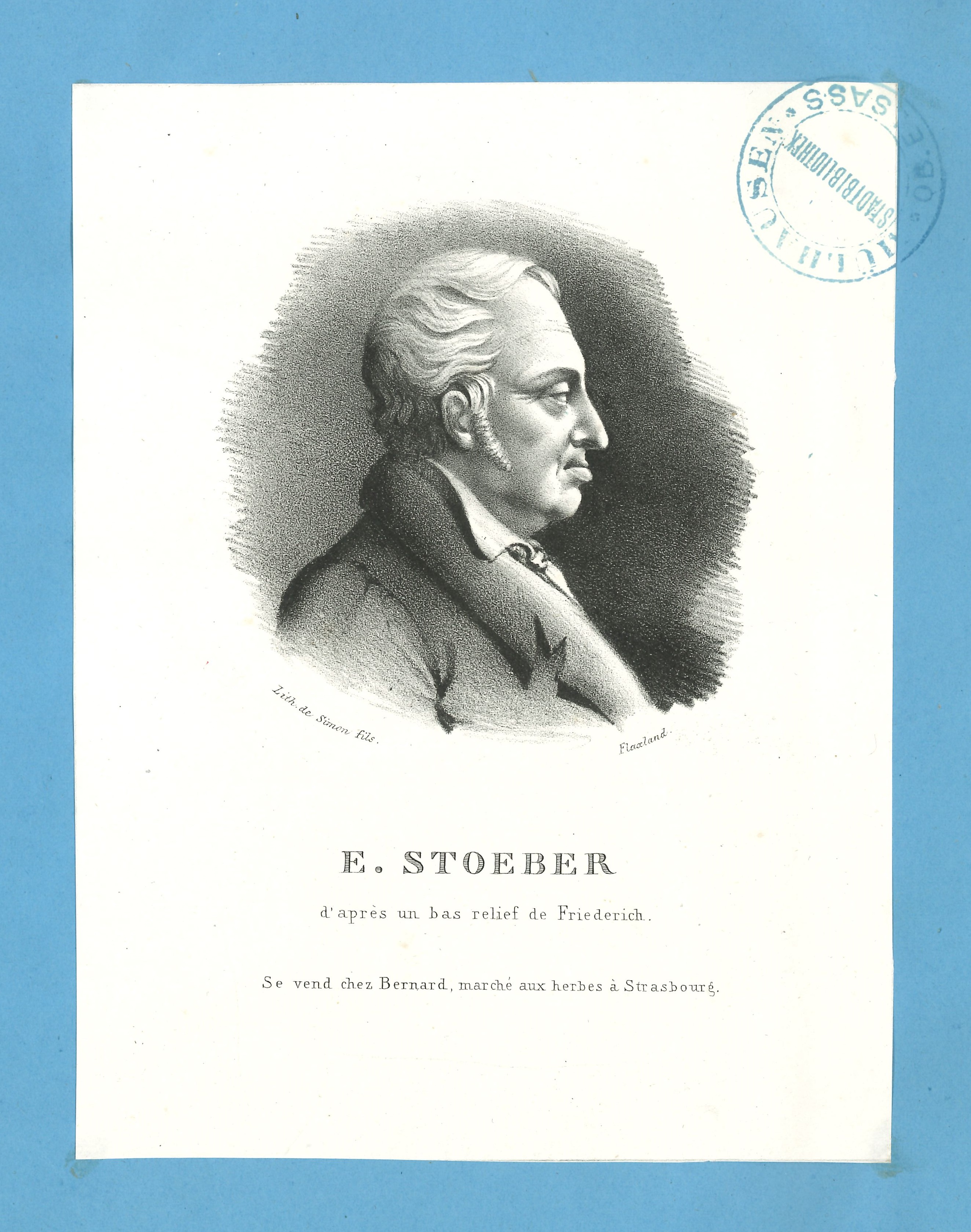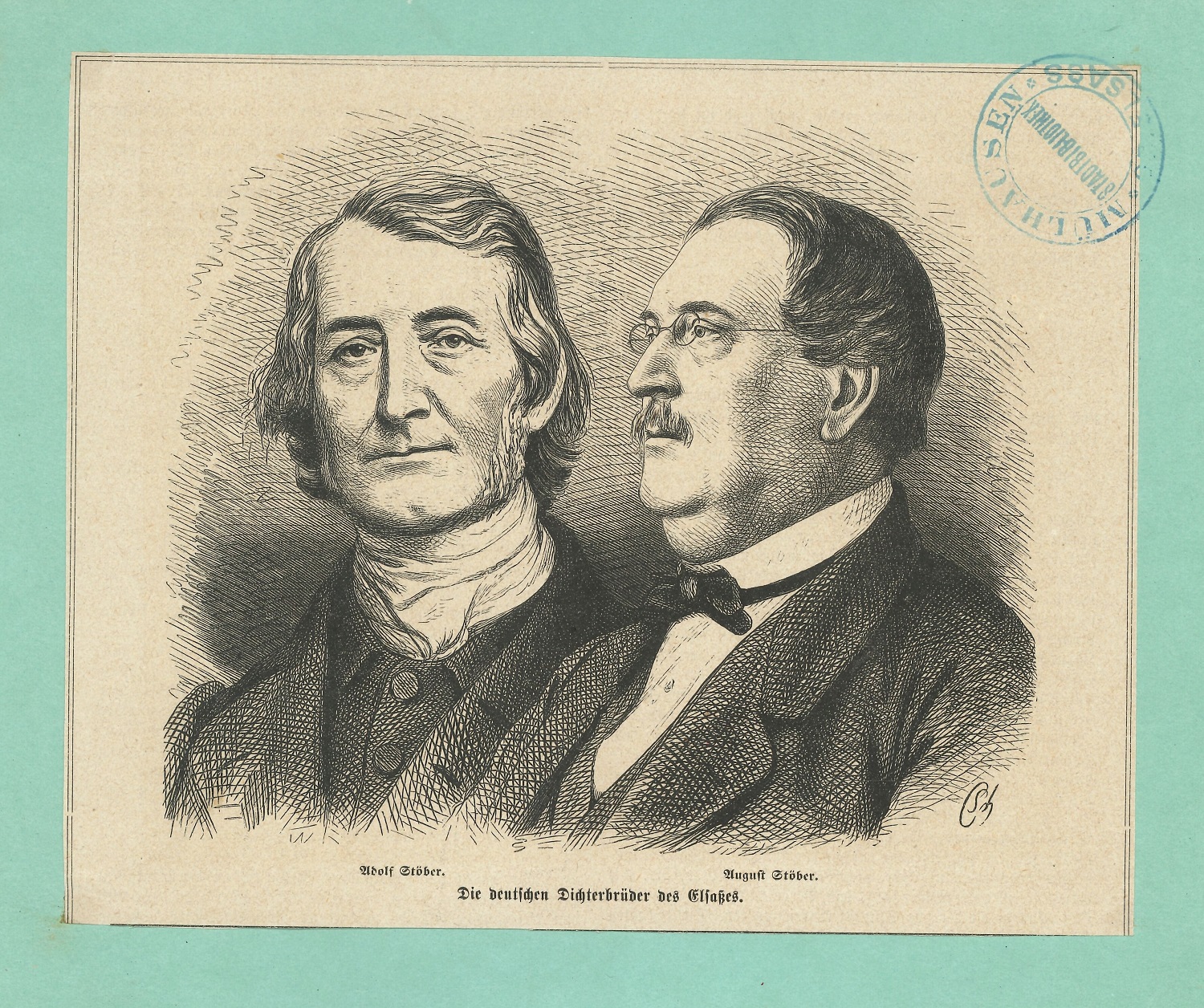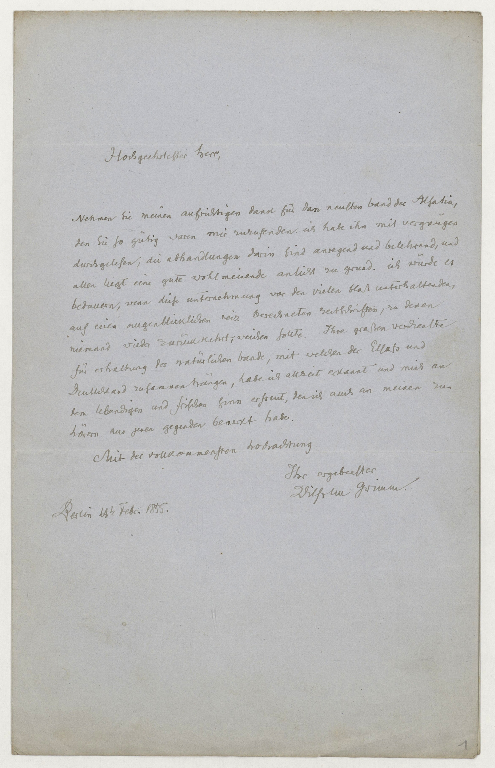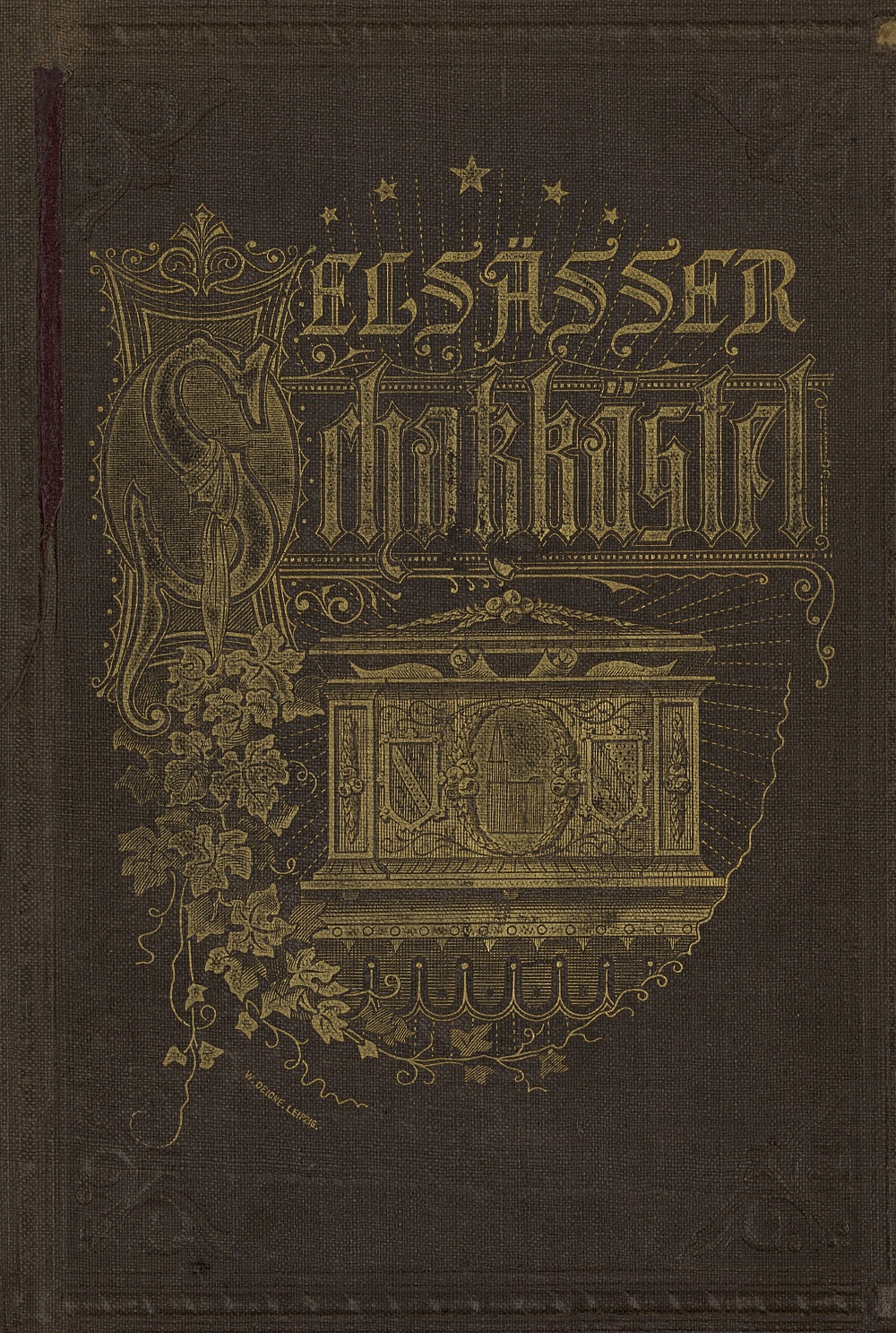Stoeber is a well-known family name in Alsace, particularly in Strasbourg and Mulhouse. In addition to numerous Stoeber brochures and notebooks, the Mulhouse municipal library holds the "Stoeber archive cabinet", a remarkable piece of literary history.
This archive comprises of numerous letters, family documents, genealogical records, and printed documents from this period. It was sorted by Robert Stoeber, Auguste Stoeber's great-nephew, who worked extensively on the documents, identifying, categorising, translitterating them, and more. Michel Stoeber, Auguste Stoeber's great-grand-nephew, devoted particular attention to translating the legends (Die Sagen des Elsasses) published in 2009 in "Mille ans d'Histoires, de Légendes et de traditions orales d'Alsace". He donated the archive to the City of Mulhouse in 2013.
Daniel-Ehrenfried Stoeber was the father of Auguste and Adolphe Stoeber. Born in Strasbourg, he was a lawyer and poet, and is regarded as the first folklorist in Alsace and the father of the lyrical genre in regional dialects.
In his book Neujahrsbüchlein (1818), he promoted prose and poetry in the Strasbourg dialect and published a glossary that laid the foundations of Alsatian philology.
Interested in his native region's history, he published a biography of the pastor Oberlin and journals such as the Alsatisches Taschenbuch at the very beginning of the 19th century.
When Ehrenfried Stoeber died on 18 December 1835, no fewer than seven tributes were paid to him, and his memorial in Strasbourg's St Gall cemetery became the property of the city of Strasbourg in 1874, in recognition of his contribution to Alsatian literature. Ehrenfried Stoeber's literary talent and his love for his native region were generously passed on to his two sons, Auguste and Adolphe.
His eldest son, Auguste Stoeber, followed in his footsteps, devoting himself to research on Alsatian customs, legends, and folklore.
After studying theology in Strasbourg, Auguste was appointed professor in Mulhouse's secondary school, then librarian in 1861. After the war of 1870-1871, he stayed in his adoptive town, where he continued to work as municipal librarian and curator of the Mulhouse Historical Museum, which he had founded in 1863, and retired in 1873. The exhibition room of the Mulhouse Municipal Library bears his name.
He published numerous works on the legends and customs of Alsace, inspired by the work of the Grimm brothers of collecting German legends.
His major work, Les Légendes d’Alsace, was published in St. Gallen (Switzerland) in 1852 and has been reprinted many times, the latest edition dating from 2016. He also wrote numerous German language and literature textbooks.
His memory is honoured in Mulhouse's central cemetery by a funerary monument.
Adolphe Stoeber was also born in Strasbourg. He studied theology in his home town, before being appointed professor of religion at the local school and college in Mulhouse. He was also appointed pastor in Mulhouse, where he worked on the construction of the current church on Place de la Réunion. A pastor, poet, and writer, he published not only his sermons but also, like his father and older brother, poems in dialect.
These include unpublished poems such as Die Ill, which had not yet been published when the Elsässer Schatzkästel was published in 1877, and the Schlüssele zum Schatzkästel, a prologue defending the Alsatian language and culture against the German Empire, which had annexed Alsace 5 years earlier and which first appeared in this collection.
After his death on 8 November 1892, his poems (Gedichte), first published in 1845, were republished in 1893 by Heitz & Mündel.
